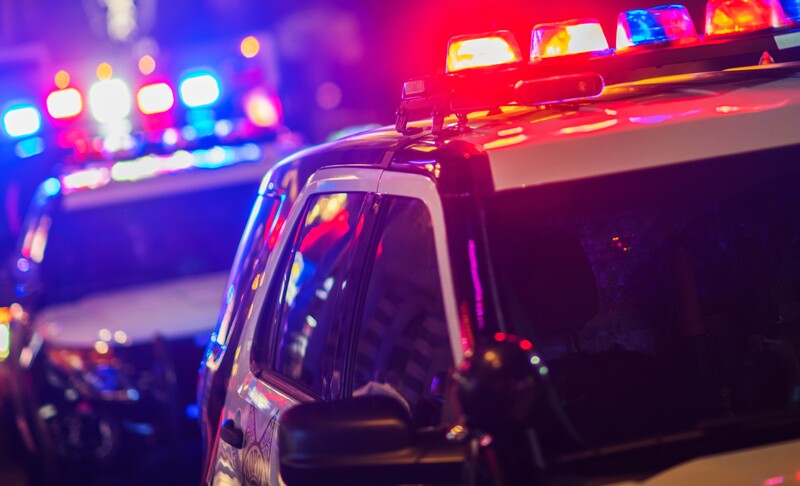Drug driving has become an increasing problem in the UK, with an ever-increasing number of motorists being charged with driving under the influence of drugs.
According to a report issued by the Department for Transport, England and Wales reported just under 6,000 drug-driving offences in 2019, an increase of 31% year on year. Drug driving incidents are becoming increasingly dangerous with drug drivers now involved in more death by careless driving accidents than drunk drivers.
With stricter laws now in effect from the criminal justice system, it’s crucial that drivers charged with drug driving understand how best to navigate the legal system, minimize their impact and defend themselves against accusations. However, if you have been convicted of drug driving and are not sure what to do it is important to contact a drug driving solicitor for legal expert advice.
What is a drug driving offence?
A drug-driving offence occurs when someone is caught operating a motor vehicle while under the influence of drugs that affects their driving ability causing careless driving. This includes illegal drugs such as cannabis, cocaine, LSD, ketamine, and heroin as well as prescription medicines and certain controlled drugs such as strong painkillers that could impair driving safety.
The offence may also be committed if a person is found to be driving with drugs in their system above the legal limit, even if they do not exhibit any signs of impairment.
Penalties for drug and drunk driving in the UK are severe and can potentially include an unlimited fine, license suspension, and a criminal record.
If a driver who was under the influence of drugs ends up causing death while careless driving they could be charged with “causing death through careless driving while under influence of drink or drugs” under the Road Traffic Act 1993 and served with a maximum penalty of life imprisonment.
What are the drug driving limits?
The drug driving limits refer to the maximum amount of drugs or their metabolites that a driver is legally allowed to have in their system while operating a motor vehicle. These limits are set by law and vary depending on the country and the substance in question.
In the UK, the specified limits are set at very low levels for a range of illegal drugs, including ecstasy, LSD, ketamine, and heroin, and over-the-counter medication, including certain opioid-based drugs such as morphine, benzodiazepines, and amphetamines. The limits are measured in micrograms per litre of blood or milligrams per litre of urine, and drivers who exceed these limits can be charged with a drug driving offence.
What happens during a drug driving test?
If police suspect you are over the limits set due to careless driving, they are then permitted to pull you over to conduct a roadside screening test or a field impairment test.
Most drugs, other than alcohol, are not detectable via a breath test. So, at the roadside, officers can test for cannabis and cocaine using an oral saliva drug testing kit. Or if necessary take you to a police station and test for other drugs such as ecstasy, LSD, ketamine, and heroin using a blood or urine test.
Will I lose my driving licence for drug driving?
Those convicted of driving under the influence of drugs in the UK face an automatic driving ban of one year and an unlimited fine, in addition to a criminal record. Depending on the severity and number of offences committed, the driving ban length may differ depending on whether or not it is a first or subsequent offence. It is also important to keep in mind that drug driving laws and tests are complex and vary based on jurisdiction.
Can I get out of a driving ban?
Yes. It is possible to appeal a drug drive conviction in court, but this can be difficult without expert legal representation. To successfully defend against a charge, you will need to show that there was a problem with the testing procedure, the police acted unlawfully, or that you had a legitimate reasonable excuse, such as a medical reason, for taking the drugs.
Can I appeal a driving ban?
Yes. If you are facing a drug driver conviction, you have the option to appeal the charge in court. However, this can be a challenging task to undertake without the assistance of an expert legal representative.
To successfully defend against this charge, you will need to present a reasonable excuse with compelling evidence. This must highlight issues with the testing procedure, prove that the police acted unlawfully or demonstrate that you had a legitimate medical reason for taking the drugs.
The process of appealing a drug driving charge requires a deep understanding of the relevant laws and regulations. It is essential to seek guidance from a qualified legal professional, such as a drug-driving solicitor, who has experience in handling similar cases.
How do I appeal a driving ban?
Here are the steps involved with appealing a ban in regard to the drug driving law in the UK:
- Begin With Legal Advice
The first step to any appeal is to seek legal advice from a seasoned and qualified solicitor. They will assess your case and advise whether there are grounds for appeal according to such aggravating and mitigating factors.
2. Gather Evidence
To strengthen your appeal, it will be essential to gather relevant evidence such as witness statements, medical records or proof of an improper testing procedure.
3. Submit an Appeal
Should you decide to file an appeal, if necessary you will need to submit a completed Notice of Appeal form within 21 days from the date of your conviction to the Magistrates’ Court.
4. Attend a Hearing
Once submitted, a hearing will be scheduled during which you can present your case to the court and present evidence in support or opposition to it. At that point, the judge will deliberate before rendering its ruling on whether to uphold or overturn the ban.
5. Follow the court’s decision
If a court upholds your driving ban, you will not be allowed to drive during its duration; but if it overturns it, driving can resume as usual.
As the process of appealing can be intricate and time-consuming, seeking legal advice to ensure you have the best chance of success is of paramount importance.
What are the consequences of a drug driving conviction?
Criminal Record
A criminal record from drug driving can limit job opportunities, especially in fields like healthcare and education. It can also result in difficulty obtaining credit, heightened social stigma, and embarrassment. Travel options may also be restricted with difficulties in obtaining a VISA.
Increased Insurance Premium
Car insurance companies view drug driving as a serious offence that significantly increases the risk of accidents on the road. As a result, they may either increase your car insurance costs or refuse to insure you altogether, depending on the severity of your offence.
Conclusion
It is a severe offence to drive over the legal limit and the consequences of drug driving are severe and long-lasting, affecting your personal and professional life for years to come.
If you have been caught driving under the influence of drugs it’s highly recommended that you immediately contact a drug-driving solicitor who can provide expert legal representation and advice.








Add Comment